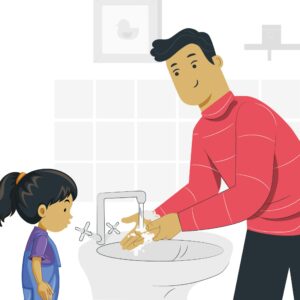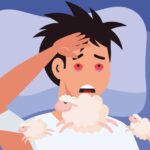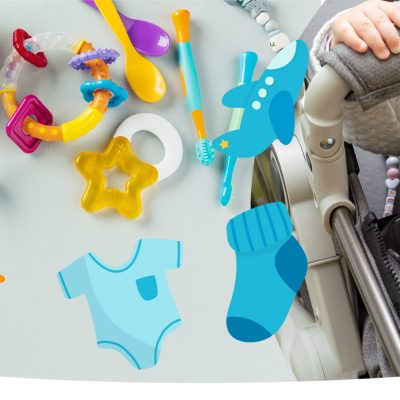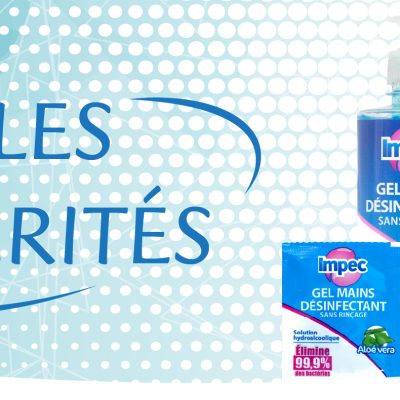With the school vacations coming to an end, most parents are already busy preparing for their children’s return to school. This involves registering with schools, purchasing school supplies and also protective equipment against the virus. It should be remembered that covid-19 is still a threat, and even if the pandemic has been brought under control in Madagascar, caution is still called for. In fact, the previous school year was marked by a prolonged halt to teaching due to a fresh outbreak of contamination!
What can you do to protect your children from covid-19 this back-to-school season?
Here’s our advice.
The importance of information
Don’t think that, because they’re so young, children can’t understand the importance of prevention. Although they may not be as cautious as adults, they are endowed with an intrinsic capacity for empathy and altruism, which means they will understand that they must protect others by protecting themselves.

After relaxing during the vacations, it will also be important to remind them that, for their own good, they should observe protective measures as much as possible: avoid gathering in groups, even during recess, keep their masks on, wash their hands, and so on..
Invest in the right protective equipment
All schools are required to provide their pupils with masks and individual hydroalcoholic gel. In this context, it is advisable to choose a quality hydroalcoholic solution such as SOMAPRO’s hydrogel gel, which is the preferred choice of many NGOs. It comes in a range of formats, including the 50 ml bottle for on-the-go use. You can also opt for the 1-liter or 500-ml economy bottle, which you can use throughout the year to save money on gel.
Remember to make children aware of the importance of cleaning their hands before entering the classroom, after playing in the playground with their classmates, and after using means of transport. Your recommendations, added to those they learn in class, will help them make hand hygiene a reflex.
When it comes to protective masks, it’s worth remembering that fabric masks are just as effective as synthetic ones. If you opt for the latter, you should buy them from a specialist store or pharmacy to guarantee their effectiveness in protecting against viruses. You should also bring a spare mask so that they can change after the lunch break. All fabric masks need to be cleaned, dried and carefully ironed every day.
Check the temperature before going to school
Fever is one of the symptoms of coronavirus infection. Most schools, however, do not take temperatures at the entrance, so parents are advised to do so themselves before leaving school. Despite the fact that systematic temperature-taking is not a certain way of detecting contamination (it’s possible to be an asymptomatic carrier!), it is an additional precautionary measure. It allows you to easily determine whether your child has a fever, and to take the necessary measures timely.
Taking temperatures can be done with any type of thermometer, including forehead thermometers, which guarantee fast, reliable results.
Bring meals from home
If your child has to eat lunch at school, it’s best to bring food from home. This practice guarantees better protection against contamination than cafeteria food.
This also applies to snacks, which should be packed in a disposable bag if they are not packaged.

School transportation
If your child has to use a means of transport to get to school, remember to teach him or her good practices to avoid contamination in the car: cover the nose and mouth well during the journey, wash hands thoroughly with hydroalcoholic solution, avoid touching surfaces as much as possible, etc.
Disinfecting after school
It’s very important to disinfect yourself as soon as you get home from school to prevent the risk of virus infection. To do this, you must ensure that your child bathes and changes clothes as soon as he gets home. As far as possible, avoid wearing the same clothes as the day before for the following day.
Make sure that preventive measures are applied at school
The start of the school year is an opportunity to find out from the school what measures it plans to implement to protect pupils against covid-19: disinfecting classrooms, frequent hand hygiene, checking that masks are worn and kept clean, limiting contact between pupils, placing a mat soaked in disinfectant at the entrance to each classroom, and so on.
As a parent, you have the right to demand strict hygiene measures, and even to suggest solutions that the school can adopt to this end.






